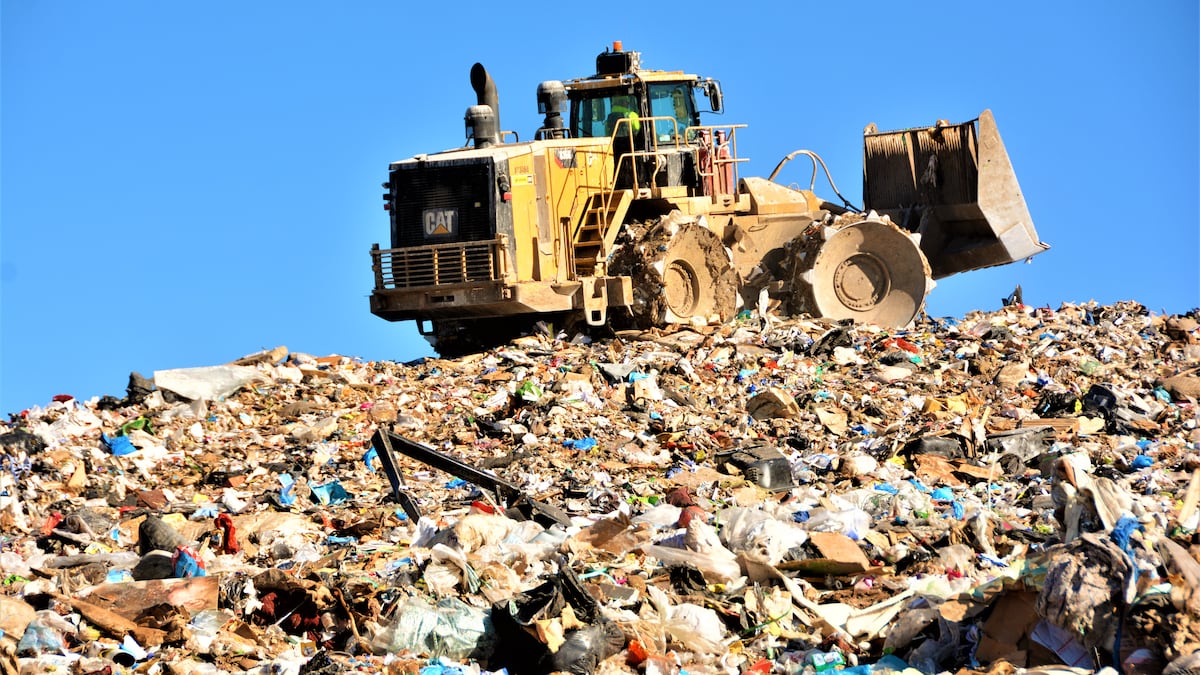- A UK man mistakenly threw out a hard drive with the private keys to 8,000 Bitcoin in 2013.
- His town has refused to let him excavate the landfill.
- A judge just sided with the town, arguing the hard drive no longer belongs to him.
A decade-long battle over a $760 million hard drive has come to an end.
A UK court ruled that James Howells cannot excavate a 350,000 tonne municipal landfill that he says contains a hard drive containing the private keys to his long-lost stash of Bitcoin.
Howells, a man living in the Welsh town of Newport, amassed the 8,000 Bitcoin — now worth about $760 million — when he started mining the cryptocurrency in early 2009.
But he kept the private keys needed to access his digital wallet on a hard drive, and, after a series of unfortunate events, it ended up in the Newport landfill in 2013.
He has been fighting the town for permission to excavate the landfill and recover the hard drive ever since.
High Court judge Keyser KC dismissed Howells’ lawsuit before it could head to trial, arguing the only relevant question was who owned the hard drive.
And the town owns the hard drive, the judge ruled.
A billion-dollar mistake?
Howells began mining Bitcoin in February 2009, just weeks after it first launched.
He quickly accumulated 8,000 Bitcoin, but it wouldn’t be worth much until 2013, when the cryptocurrency shot to $100 per token, then, briefly, $1,000 per token.
A hard drive containing the private keys to his Bitcoin wallet — akin to an account password — had been sitting in a drawer in his home office the past three years.
That autumn, he went looking for it, only to realise he had mistakenly put it in a garbage bag his partner had brought to the dump in August.
By mid-2015, Bitcoin had dropped under $250 per token, and Howells’ stash was worth $2 million. By early 2017, however, it was again worth $1,000 per token, or about $8 million in Bitcoin he couldn’t access.
By the end of that year, the value of the stash swelled to more than $100 million.
By the end of 2021, it was half a billion. At Bitcoin’s peak in December, it would have been worth more than $860 million.
And some are betting it will reach far higher.
All the while, Howells lost both his job maintaining emergency response systems for various Welsh communities as well as his relationship to his longtime partner.
In an interview with The New Yorker, he said he may have subconsciously blamed her for the lost fortune.
But he also put together a plan to retrieve the Bitcoin: in exchange for a cut of the Bitcoin, investors would help him pay for companies “that could perform targeted landfill removals,” The New Yorker reported.
He retained a retired manager of the landfill as an adviser. He even offered Newport a cut of the proceeds if the excavation was successful.
A prize-winning novel
But town officials were unmoved, arguing that excavating a 350,000 tonne landfill could become an environmental hazard for landfill employees and townspeople, among other issues.
In 2024, he sued the town, asking for the hard drive, permission to look for the hard drive, or money equal to the value of the Bitcoin that could be accessed with the private keys.
During a hearing, one of Howells’ attorneys implied the town effectively had his Bitcoin, an argument the judge rejected.
“If a copy of the novel that won the Booker Prize in 2024 were thrown into the landfill, the author’s copyright would not go with it,” the judge wrote.
The private keys weren’t directly stored on the hard drive either.
“The hard drive contains not the private key but a record of the private key,” the judge wrote.
“The position is no different in principle from what it would be if the record of the private key had been written on a piece of paper that had been put into the landfill.”
And the law states that anything delivered to the dump becomes its property, without reservations.
“The only thing that went into the landfill was the hard drive,” the judge wrote.
Aleks Gilbert is a DeFi correspondent based in New York. He can be reached at aleks@dlnews.com.


